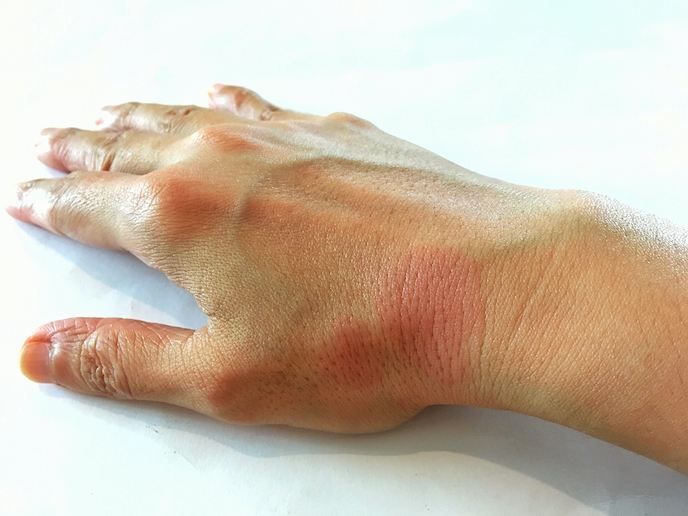Test for detecting Lupus-specific biomarkers improves diagnosis
Lupus is a chronic autoimmune disease mainly affecting women. It causes inflammation to the joints, skin and other organs. There are at least 5 million lupus patients worldwide(opens in new window), according to the Lupus Foundation of America. Without early diagnosis and treatment, the disease can be severely debilitating, with patients often having to stop working. In extreme cases it can lead to fatal organ failure. Diagnosis is difficult, partly because its symptoms overlap with other autoimmune diseases, but also because there is currently no reliable lab test. Much research has been focused on discovering autoantibody biomarkers for the disease, which are usually not specific enough for an accurate diagnosis. The ClarifyLupus diagnostic blood test set out to rectify this situation by identifying and quantifying altered proteins which play a key role in the onset of lupus. Crucially, the ClarifyLupus test is effective from the early stages of the disease. Having already completed the proof-of-concept stage, EU support enabled the project team to gather more preliminary data. They collected this from a patient study which validated the test’s efficacy in differentiating lupus patients from other sufferers of other rheumatic diseases(opens in new window).
A completely new approach
The start-up company, Clarify Analytical(opens in new window), was responsible for the ClarifyLupus product and project. One of Clarify Analytical’s cofounders, after displaying the first symptoms of an autoimmune disease, had to wait 4 years for a definitive diagnosis. This inspired her to develop a completely new approach. “Our solution is unique because we are not monitoring markers associated with the autoimmunity response, but rather we focus on identifying indicators for the onset of this response,” explains project coordinator Alexandra Maria Moita Antunes. EU support enabled the team to test the technology in a larger cohort than had been previously possible. They worked with lupus patients, patients with confounding diseases and healthy volunteers, recruited from Egas Moniz Hospital in Portugal. The cohort consisted of 25 lupus patients, 25 rheumatoid arthritis (RA) patients, 25 ankylosing spondylitis (AS) patients and 25 healthy controls. “Our test convincingly identified the lupus patients with a good degree of discrimination, making this a very important step in taking this diagnostic method through the regulatory process needed to reach the market,” says Antunes.
Better diagnosis for better prognosis
By offering a more effective tool for the early clinical diagnosis of lupus, ClarifyLupus sets out to increase patients’ ensuing prognosis. “By building on knowledge about the disease, we contribute to the development of new methodologies to assess future therapies for lupus patients,” says Antunes. This overarching ambition is in line with the Health, Demographic Change and Wellbeing Challenge(opens in new window) set out by the European Commission under Horizon 2020. Indeed in 2018, the team received a Letter of Support from Egas Moniz Hospital(opens in new window) in Lisbon, outlining the potential of ClarifyLupus. The technology is still undergoing clinical validation. Afterwards it will undergo a regulatory process that can take 2 to 3 years to complete. The team are currently looking for further investment. “We are determined that ClarifyLupus becomes the breakthrough diagnosis for lupus, with earlier treatment resulting in the lives of patients being extended by decades, while improving their quality of life,” says Antunes.







